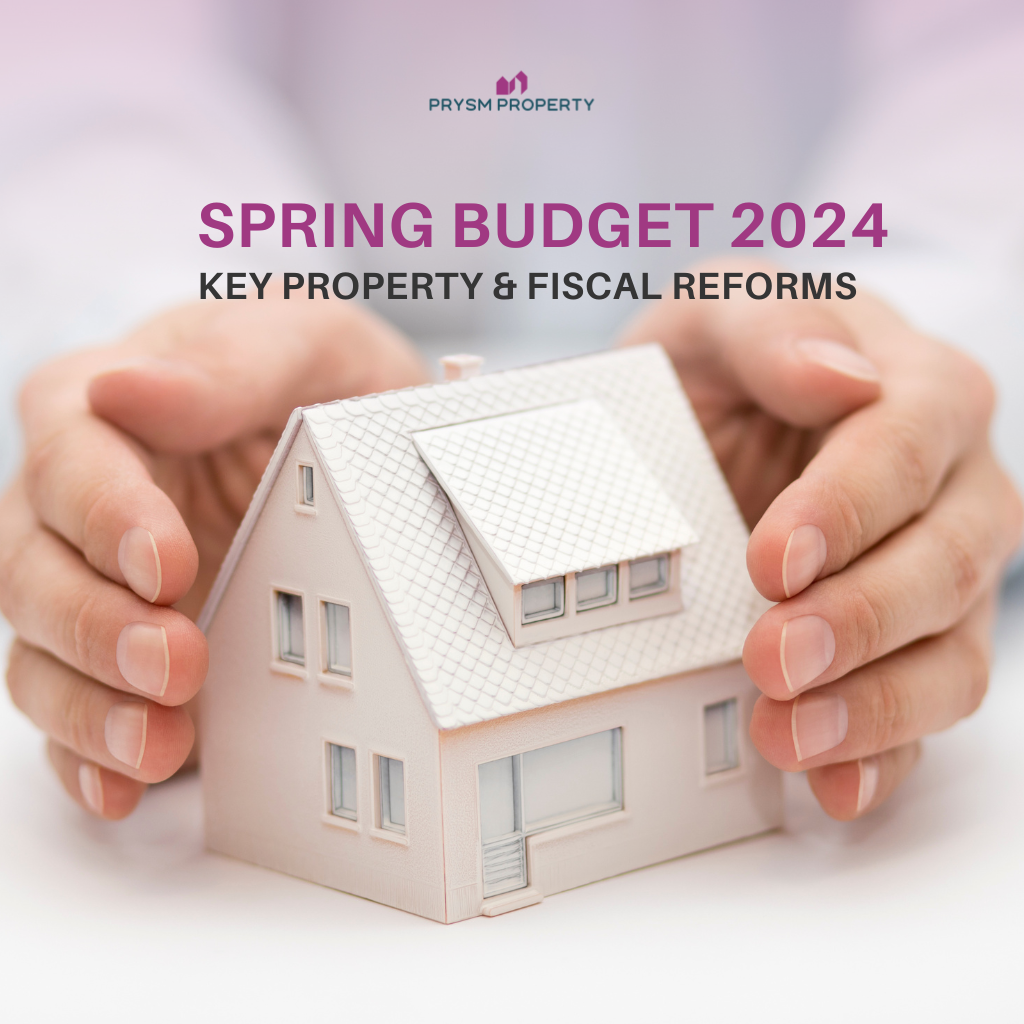In the unveiling of the Spring Budget 2024, the UK government announced a series of measures aimed at reshaping the property landscape and bolstering economic growth. Among the highlights are significant changes to Capital Gains Tax, Stamp Duty Land Tax and business rates, reflecting a concerted effort to stimulate property transactions and support small businesses. Let’s delve into the key property-related amendments and broader fiscal adjustments outlined in this pivotal budget.
Navigating the Spring Budget 2024: Property and Fiscal Reforms
As the curtains rise on the Spring Budget 2024, the government unveils a strategic roadmap designed to invigorate the property market and foster economic resilience. Here’s a closer look at the pivotal reforms set to shape the landscape:
Read More: Cost of Living Allowance
1. Capital Gains Tax Adjustments
- Effective April 6, 2024, the higher rate of Capital Gains Tax for residential property sales undergoes a significant reduction, dropping from 28% to 24%.
- The lower rate remains at 18% for gains within an individual’s basic rate band, incentivising landlords and second home-owners to sell properties and expand the housing stock for first-time buyers.
2. Stamp Duty Land Tax Changes
- Multiple Dwellings Relief, a bulk purchase relief under the Stamp Duty Land Tax regime, will be abolished from June 1, 2024, impacting those purchasing property portfolios.
- Transactions with contracts exchanged before March 6, 2024, will continue to benefit from the relief, along with other purchases completed before June 1, 2024.
3. Business Rates and Empty Property Relief
- The “reset period” for Empty Property Relief under business rates extends from six weeks to thirteen weeks in England from April 1, 2024, providing relief for property owners.
- These adjustments mean that the minimum period a property must be occupied before you qualify for Empty Property Relief has been extended.
4. Furnished Holiday Lettings (FHL) Tax Regime Abolishment
- Effective April 2025, the government plans to abolish the Furnished Holiday Lettings (FHL) tax regime, aiming to ‘level the playing field’ between short-term and long-term lets and support local residency.
- Although presented as a simplification of income calculation and reporting for individuals with FHL and non-FHL properties, this change would see the scrapping of many benefits to those operating Furnished Holiday Lettings in their personal name..
- These include abolition of a reduced Capital Gains rate of 10% for property disposal and inability to deduct operating expenses before tax calculation. This would bring the sector in-line with Section 24 restrictions that came into full force in April 2021.
- National Insurance Cuts: What It Means for Individuals
- The government is cutting the main rate of employee National Insurance by 2p from 10% to 8% from 6 April 2024. This builds on the 2% cut seen during the Autumn budget.
- The government is also cutting a further 2p from the main rate of self-employed National Insurance on top of the 1p cut announced at Autumn Statement 2023. This means that from 6 April 2024 the main rate of Class 4 NICs for the self-employed will now be reduced from 9% to 6%.
6. High-Income Child Benefit Charge Adjustments
- From April 2024 the government will raise the threshold for the High-Income Child Benefit Charge to £60,000 taking 170,000 families out of paying this tax. The rate of the charge will also be halved so that Child Benefit is not repaid in full until you earn £80,000. If you have children and aren’t claiming this, get your application in.
Read More: The Decent Homes Standard
The Spring Budget 2024 heralds a significant milestone in the UK’s fiscal landscape, marked by targeted reforms aimed at spurring property transactions, supporting small businesses and enhancing financial inclusivity. From adjustments to Capital Gains Tax and Stamp Duty Land Tax to revisions in National Insurance rates and business thresholds, these measures reflect a multifaceted approach to economic recovery and growth.
Some might say, this is to the disadvantage of property investors and second home owners with the steady erosion of incentives, under the guise of increasing housing stock. The reality in the case of second homes, is many of these properties would otherwise be sat empty, actually placing additional pressure on normal residential stock. Once again, a balanced view should be taken, so we can achieve our aims without causing unnecessary damage.
Of course, as stakeholders adapt to the evolving fiscal framework, new opportunities will arise for property investors, entrepreneurs, and families alike. We must remain positive and stay open minded in this shifting terrain because for the mostpart things are improving. With our continued resilience, we are moving in the right direction and will give ourselves the best opportunity to thrive in a landscape of newfound possibilities.



